The best Android smartwatch 2025: Wearables by Google, Samsung and more
The best Android smartwatches for your phone
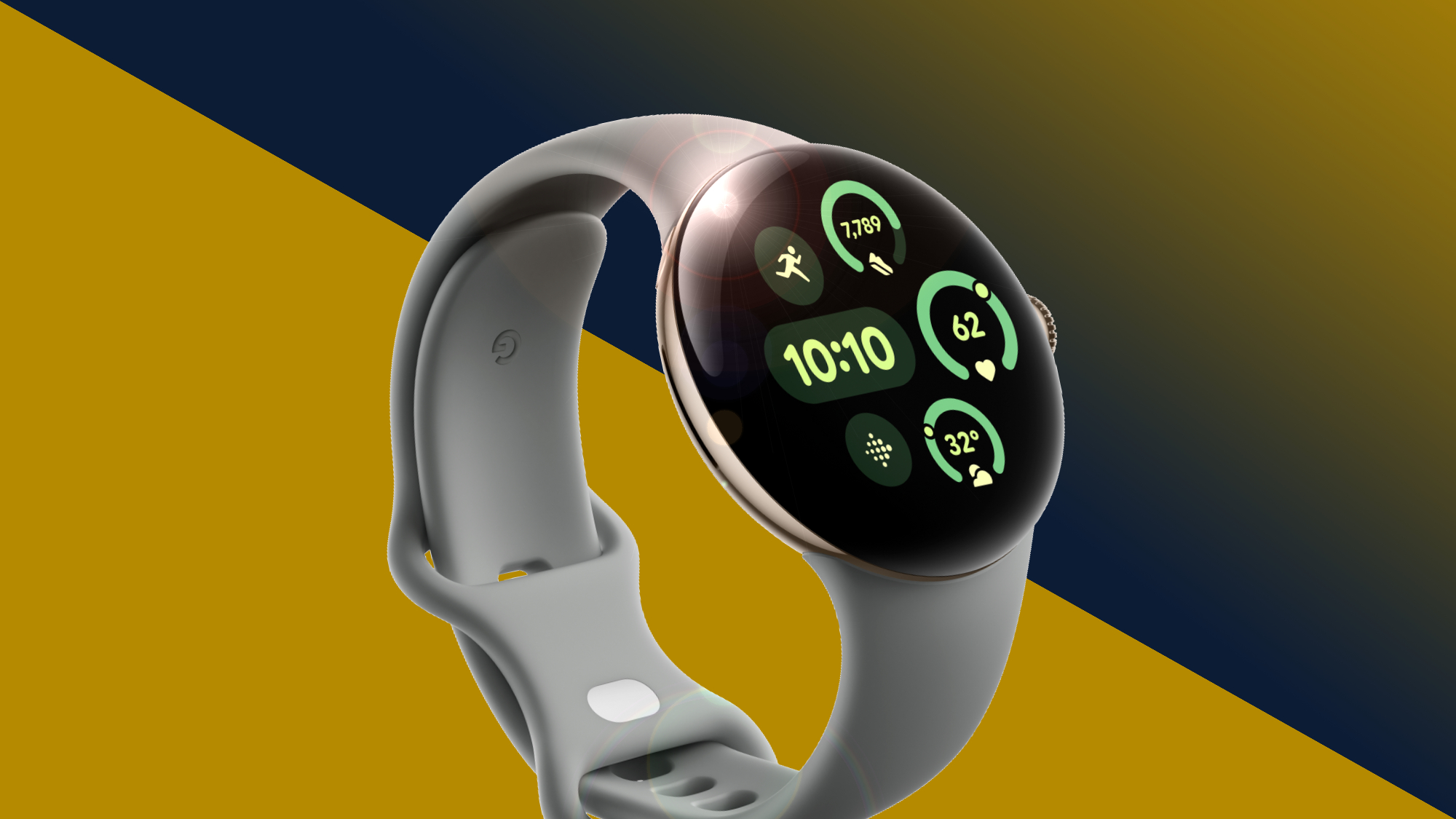
Sign up for breaking news, reviews, opinion, top tech deals, and more.
You are now subscribed
Your newsletter sign-up was successful
The best Android smartwatches deliver high-performing health and fitness tracking alongside a slew of smart features. They also work seamlessly with a wide variety of Android handsets, which means Android users have a much broader choice compared to Apple counterparts.
Our experts have picked out six of the best Android smartwatches and personally tested them based on features, price, battery life, and more. Every entry has been thoroughly tested, and we've provided a link through to each product's in-depth review.
There are a ton of great Android smartwatches for every need and budget, with picks from big players like Google and Samsung, plus a couple of picks from the likes of OnePlus and TicWatch.
Our best overall pick is the Google Pixel Watch 3 thanks to its zippy performance, two sizes, and excellent tracking. However, we're currently testing the next generation of Samsung Galaxy Watches, so check back soon to see if that upends our rankings.
You might also want to check out either our best fitness trackers or our best running watches guides. Whatever your budget, feature requirements, or style of choice, there's an Android smartwatch for you.
The Quick List
In a rush? You can find a roundup of our top choices below. It's easy to jump to a more in-depth write-up for each product and see the latest deals, just click on the links.
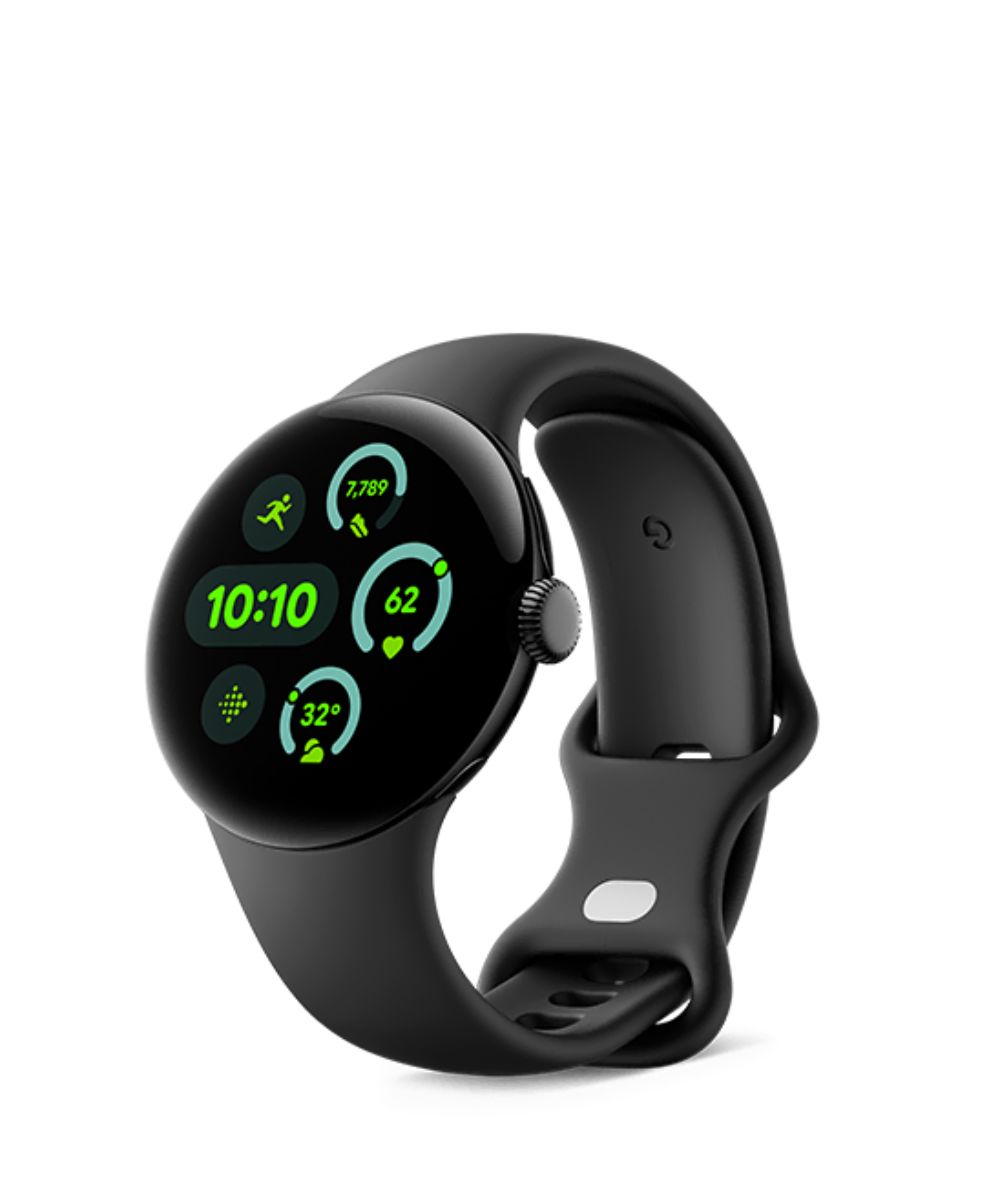
Best overall
The Google Pixel Watch 3 delivers top-tier performance in both 41mm and 45mm sizes. With impressive features and a bright, bold display, you really can’t go wrong with this one.
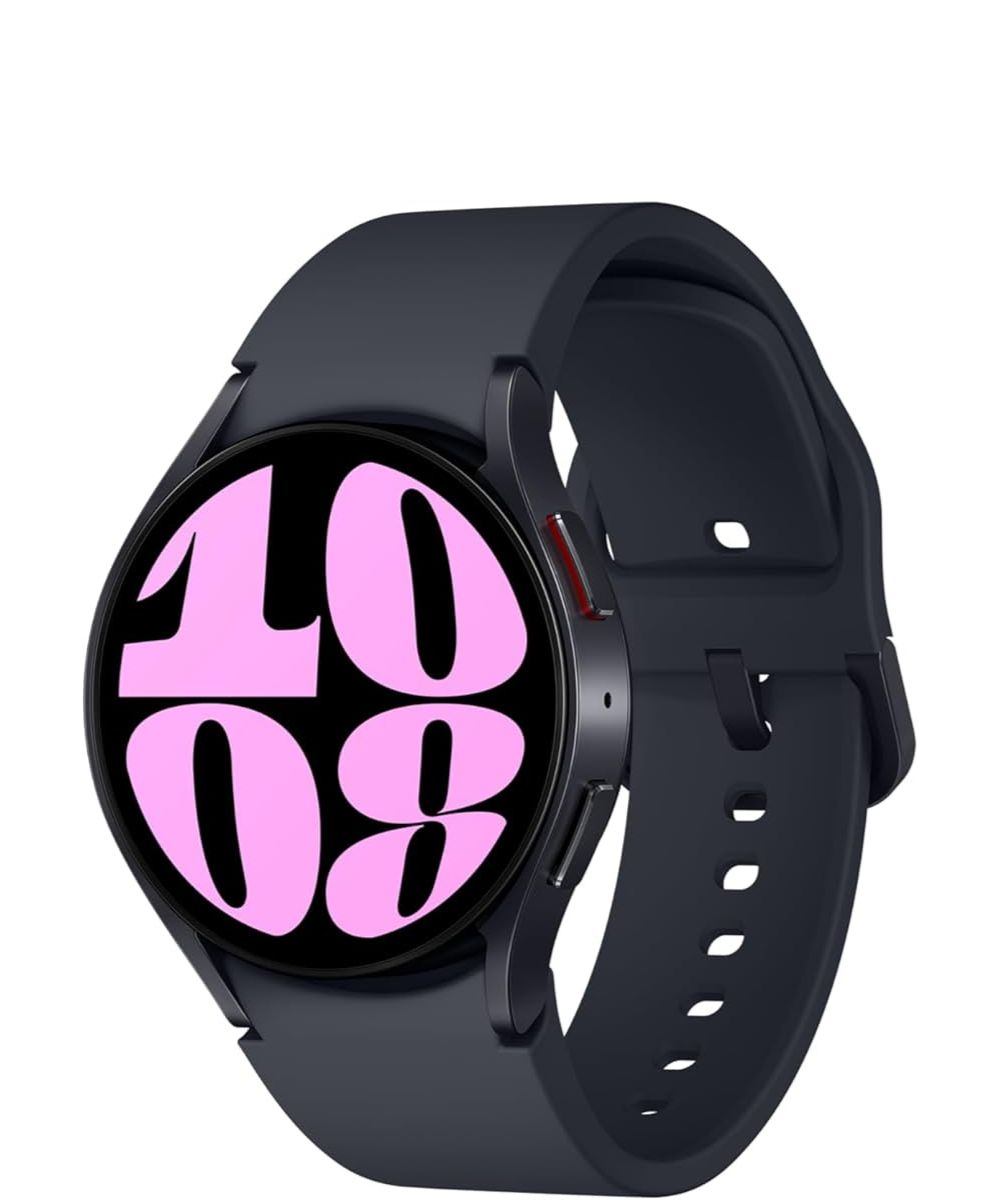
Best budget
The Samsung Galaxy Watch 6 makes for an excellent budget Android smartwatch thanks to its great feature set and cheaper price tag, even in the face of Samsung's dedicated budget model, the Galaxy Watch FE.
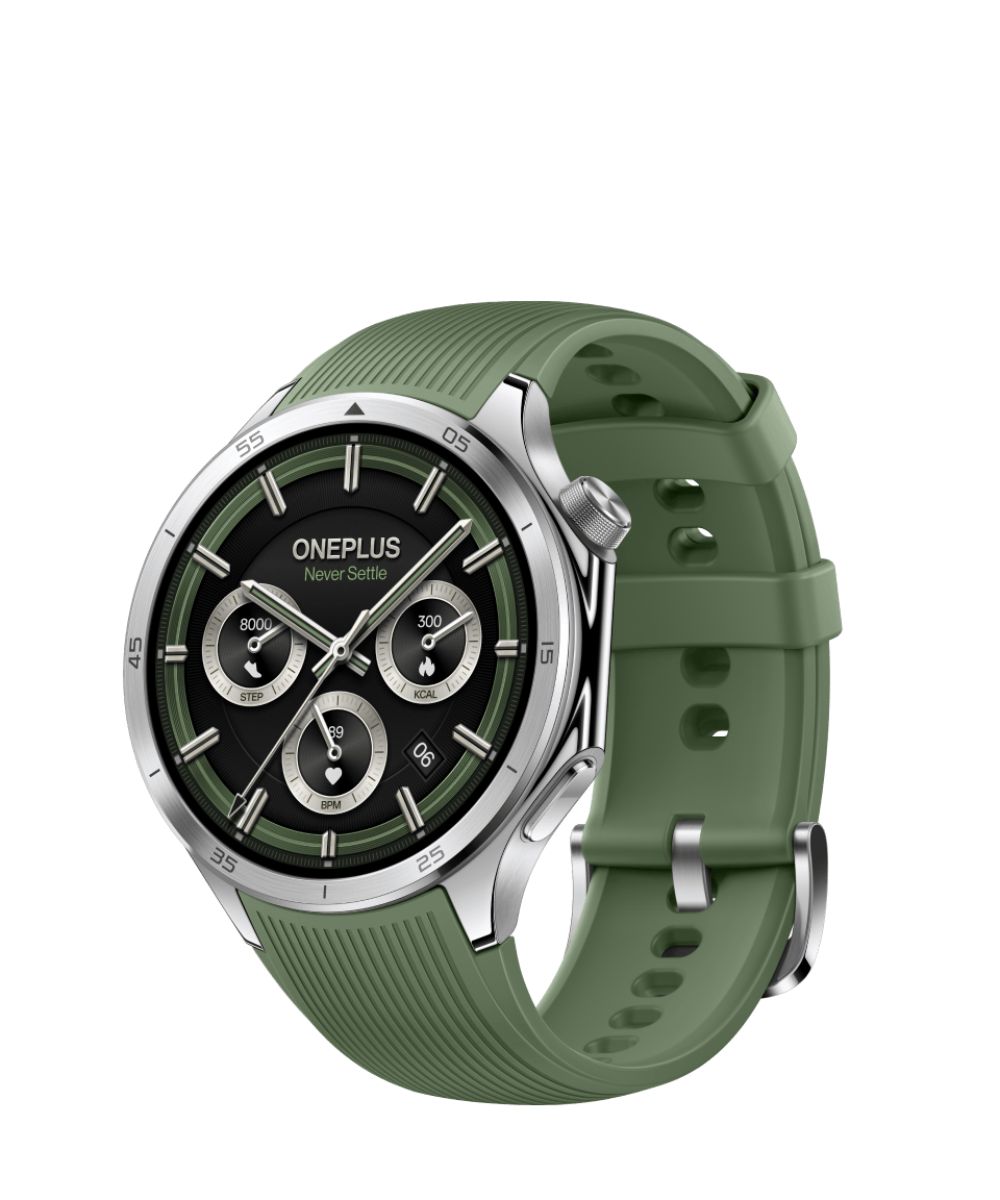
Best for battery life
New for 2025, the OnePlus Watch 3 delivers even more battery life than its predecessor, now offering up to 120 hours thanks to dual-processor configuration and a large chassis.
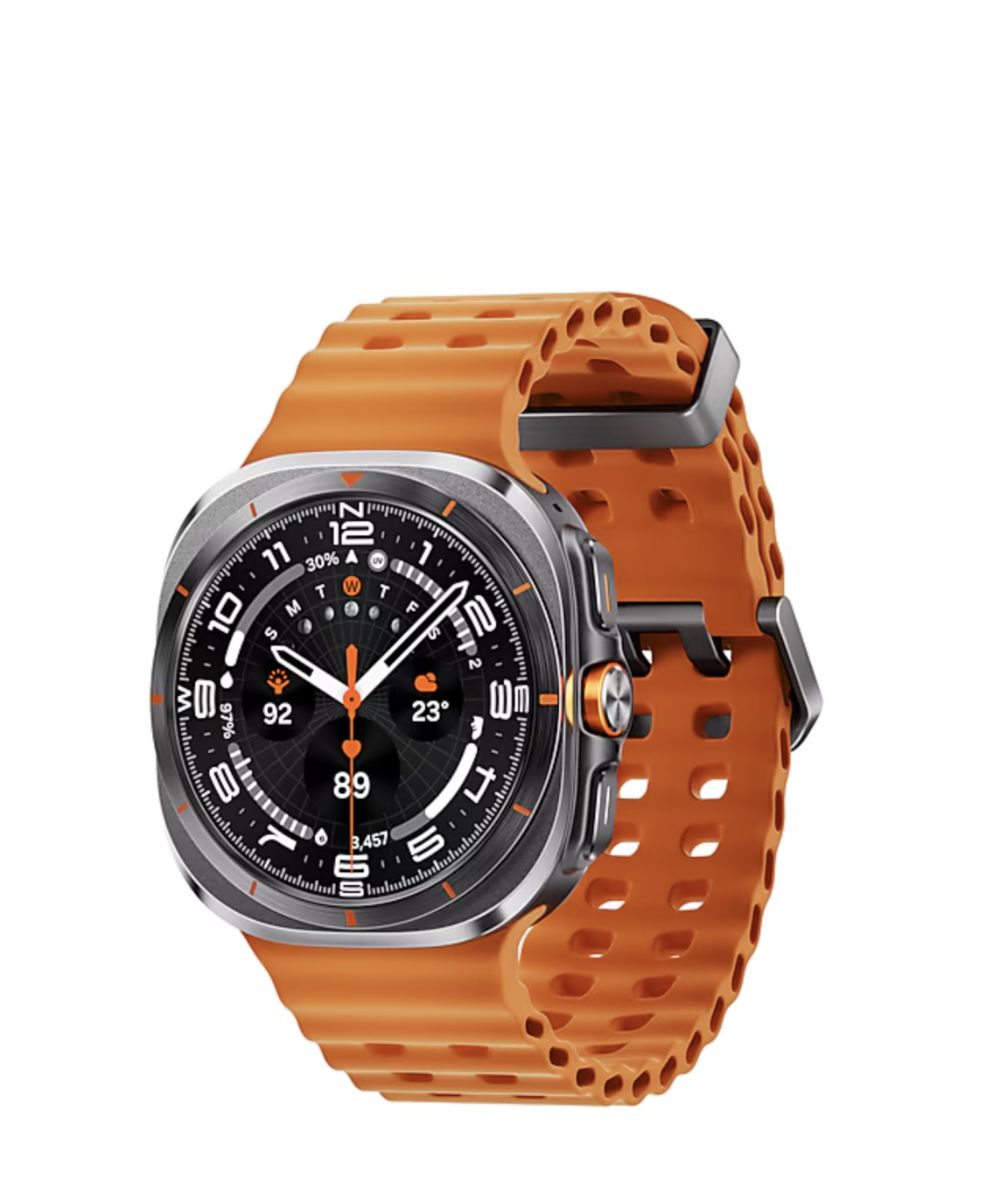
Best Samsung watch
A premium, rugged smartwatch designed for outdoor enthusiasts and Samsung lovers. It’s not perfect, but it’s packed with features and is good for fitness tracking.
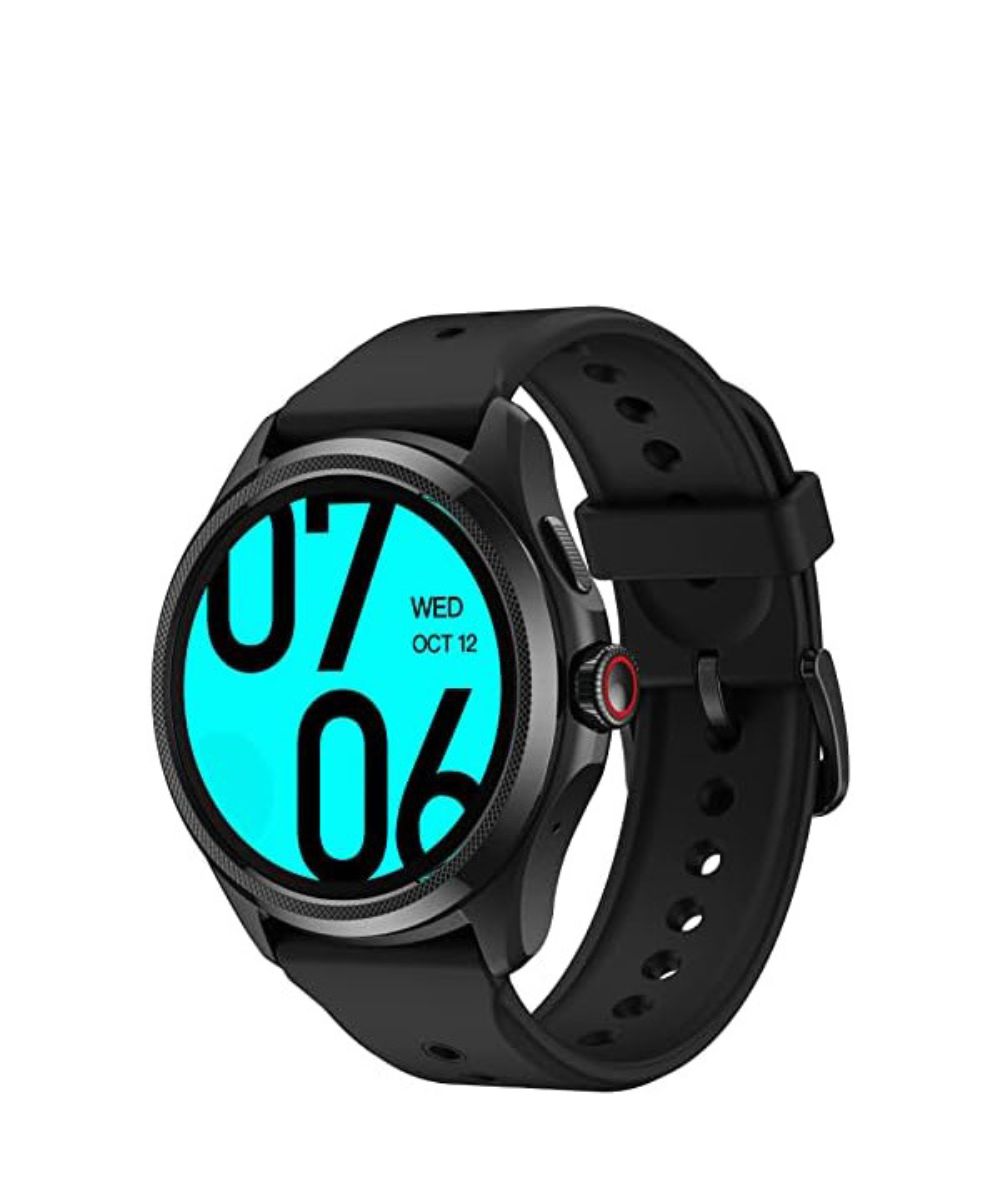
Best for sports
If you’re a fitness enthusiast or want to take your health more seriously, expect highly accurate readings and an excellent battery life from the latest TicWatch.
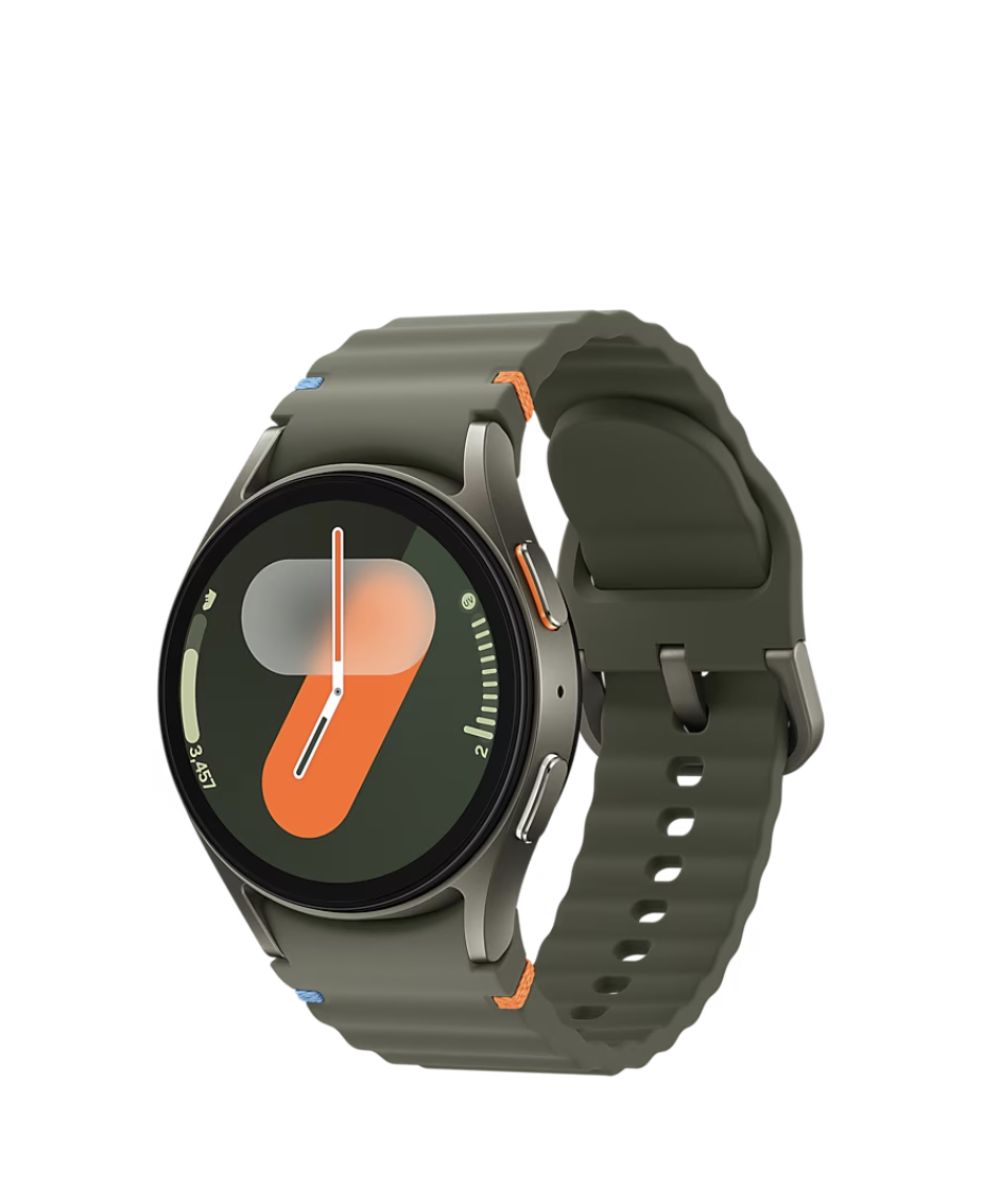
Best for value
An affordable option compared to rivals. This Samsung watch has a bright screen, lots of fitness and wellness features, and it’s a solid choice for Galaxy smartphone owners.
The best Android smartwatch 2026
Why you can trust TechRadar
In our guide below, you'll find full write-ups for each of the best Android smartwatches. We've tested each of these devices extensively, which means our recommendations can be trusted.
The best Android smartwatch overall
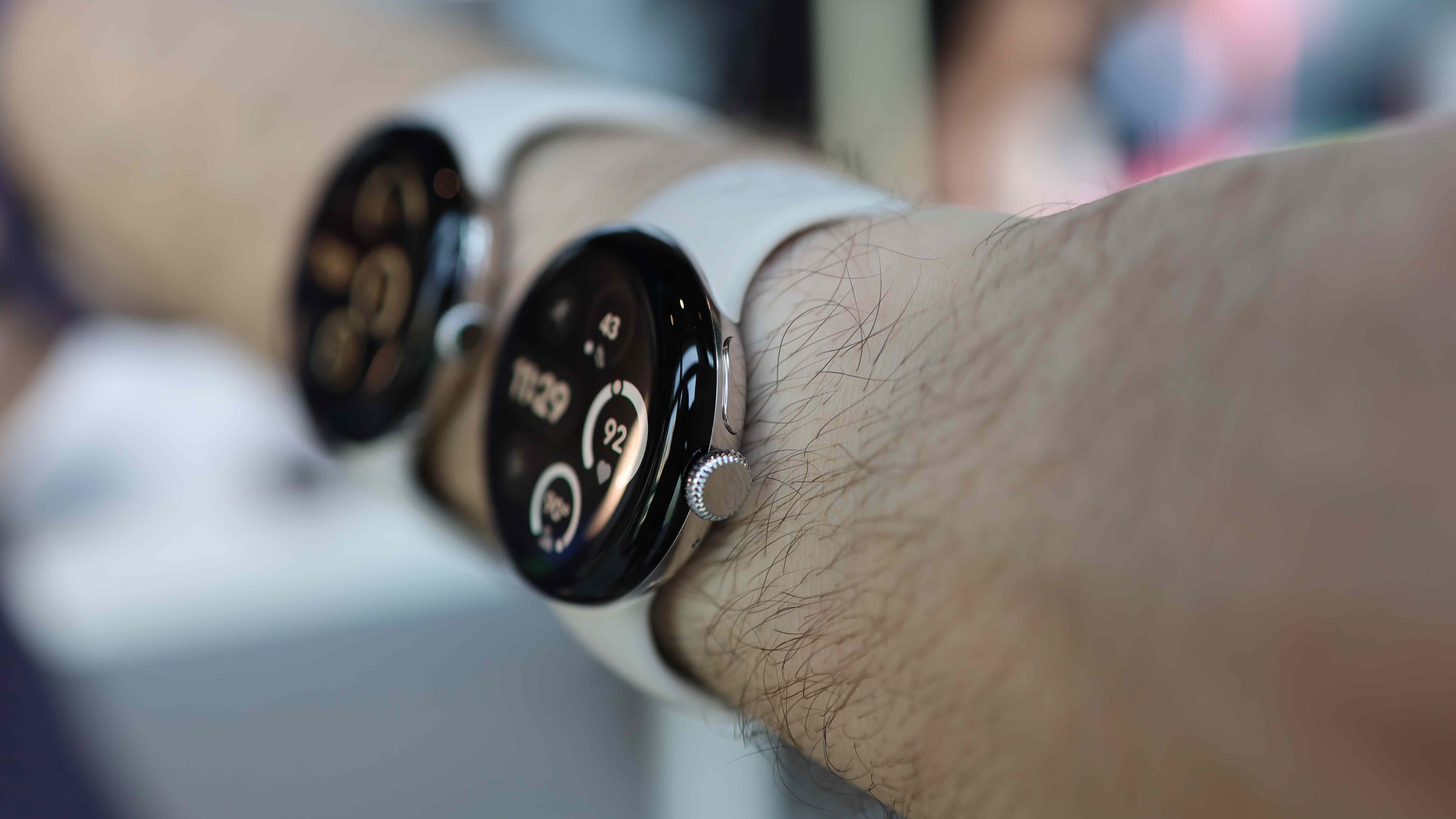
Specifications
Reasons to buy
Reasons to avoid
The Google Pixel Watch 3 is our top smartwatch recommendation for most Android users, offering impressive performance, a sleek design, and a wealth of health and fitness features. One of the standout upgrades from Google's Pixel Watch 2 is the introduction of two sizes. The same 41mm model and a bigger 45mm version. This is great news for those with larger wrists or anyone who wants more screen real estate.
Performance-wise, the Google Pixel Watch 3 is among the best smartwatches we’ve tested. In our review, we praised the watch for being “zippy and responsive,” and noted that it “feels as smooth as using an Apple Watch.” The biggest drawback is battery life. During testing, the 41mm version lasted about a day, meaning you’ll likely need to charge it overnight or first thing in the morning if you use sleep tracking. The 45mm model offers closer to two days of battery life.
Health and fitness tracking are at the core of the Google Pixel Watch 3. With six months of Fitbit Premium included, you can monitor daily activity, heart rate, stress levels, and even take an ECG reading. The new Morning Brief feature provides an activity readiness score and sleep score each day, keeping you informed and motivated. For more serious fitness enthusiasts, advanced metrics like Cardio Load and Target Load allow for personalized running workouts.
Visually, the Pixel Watch 3 looks great, with its minimal circular design and an ultra-bright screen that can reach 2,000 nits. The 41mm and 45mm versions both offer more screen space, with the smaller model benefitting from a 16% bezel reduction compared to the Pixel 2. This means it’s not only easier to read but also more functional. Overall, the Google Pixel Watch 3 is an excellent choice for anyone with a Google Pixel or a top Android phone.
Read our full Google Pixel Watch 3 review
The best budget Android smartwatch
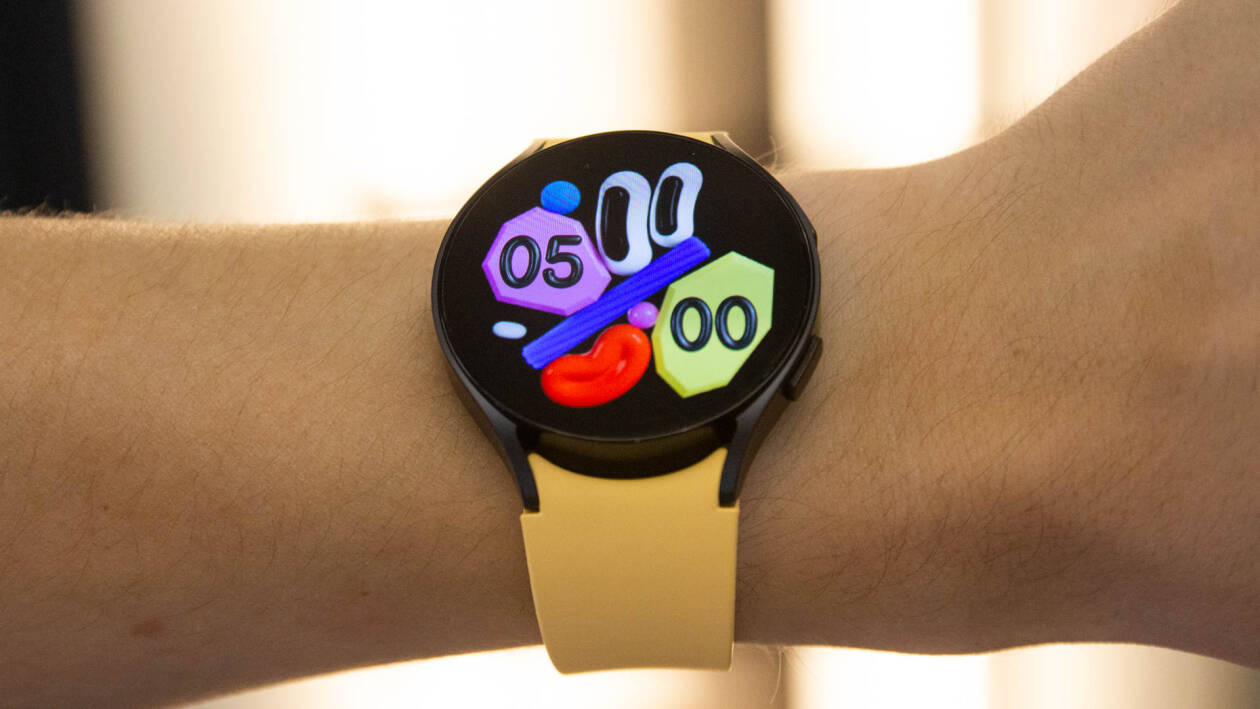
Specifications
Reasons to buy
Reasons to avoid
The Samsung Galaxy Watch 6 is the perfect budget pick for an Android smartwatch. If you need health and fitness tracking, communication, style, and more, but don't want to break the bank, then the Galaxy Watch 6 is really the perfect option.
Now that it has been supplanted by the Galaxy Watch 7, you can often find it at a hefty discount, especially during major sales events. It's certainly a much better budget pick than the Galaxy Watch FE – as we noted in our review, the FE is basically a repackaged Galaxy Watch 4 that makes no sense alongside the Watch 6. The Watch 6 is available in two different sizes. It's lightweight and offers GPS tracking, Bluetooth, Wi-Fi, and LTE.
You'll get all the health features you'd expect from an Android smartwatch. Namely, sleep scores, heart rate monitoring, exercise tracking, and even body composition measurements.
The battery life might not be the best on the market, but you should get well over 24 hours from a single charge. The Galaxy Watch line generally still boasts great build quality, easily swappable straps, and more. It also has support for Wear OS 5 thanks to Samsung's latest updates, with One UI 6 Watch bringing AI-powered sleep tracking, a new energy score, and a new double pinch action for navigation.
Read our full Samsung Galaxy Watch 6 review
The best Android smartwatch for battery life
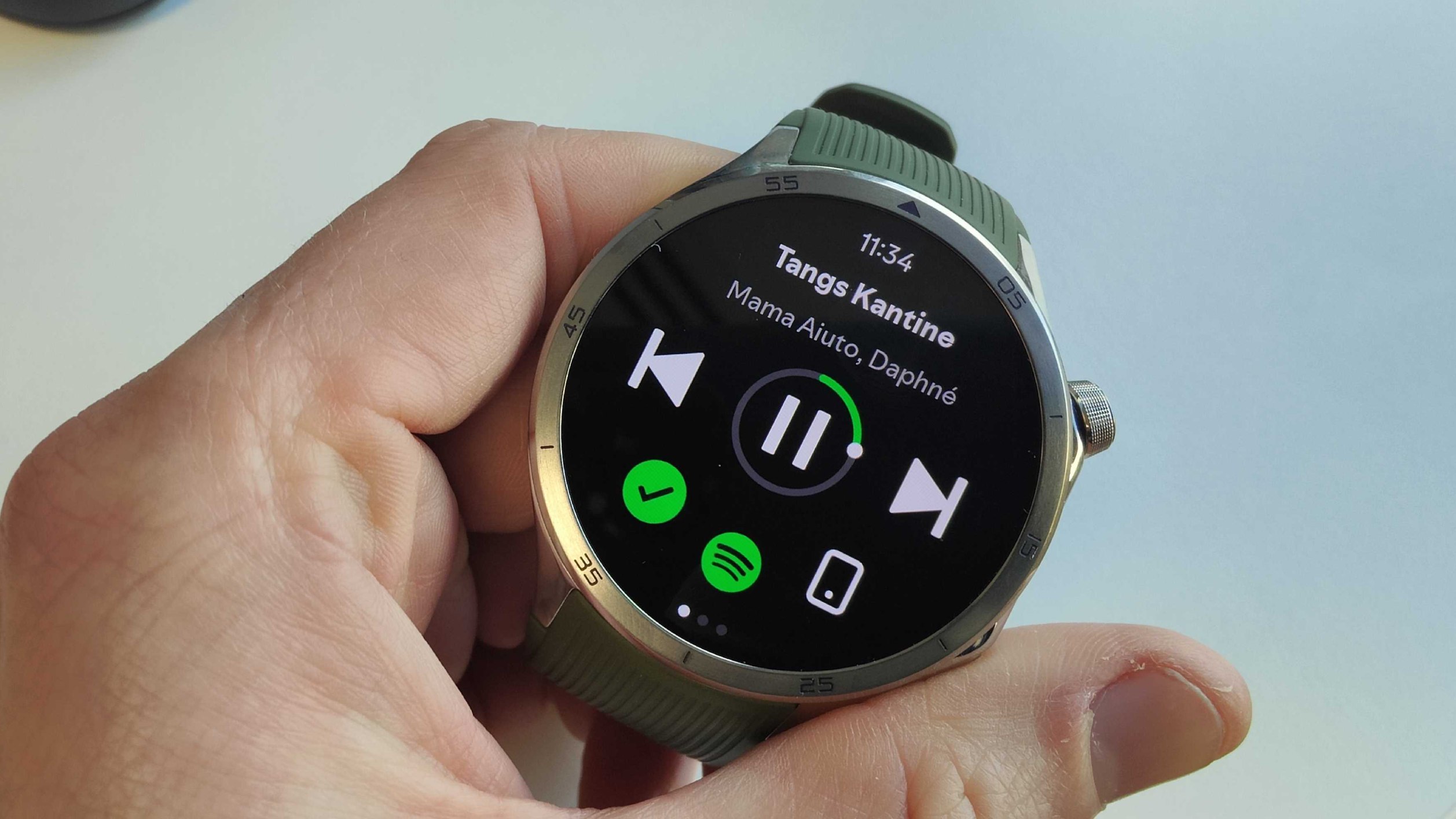
Specifications
Reasons to buy
Reasons to avoid
New for 2025, the OnePlus Watch 3 is the best Android smartwatch for battery life out there. It can't match Garmin options, but you do get the best usage of any fully-fledged smartwatch with up to 120 hours of use.
The performance is delivered by a unique dual-processor and OS configuration that switches seamlessly between the low and high-powered options depending on usage.
Fantastic battery life aside, the AMOLED display is big, bold, vibrant, and easy to look at. We loved the new rotating crown and overall classic look in our review, but it's a very chunky watch that will prove too big for some. Luckily, a smaller version is on the way later this year.
There are lots of great health features, including a new ECG function,a 60-second heart health check-in, and dual-frequency GPS.
Performance-wise, there are a couple of health tracking quirks, but battery life is very solid in line with expectations.
Read our full OnePlus Watch 3 review
The best Samsung Android smartwatch
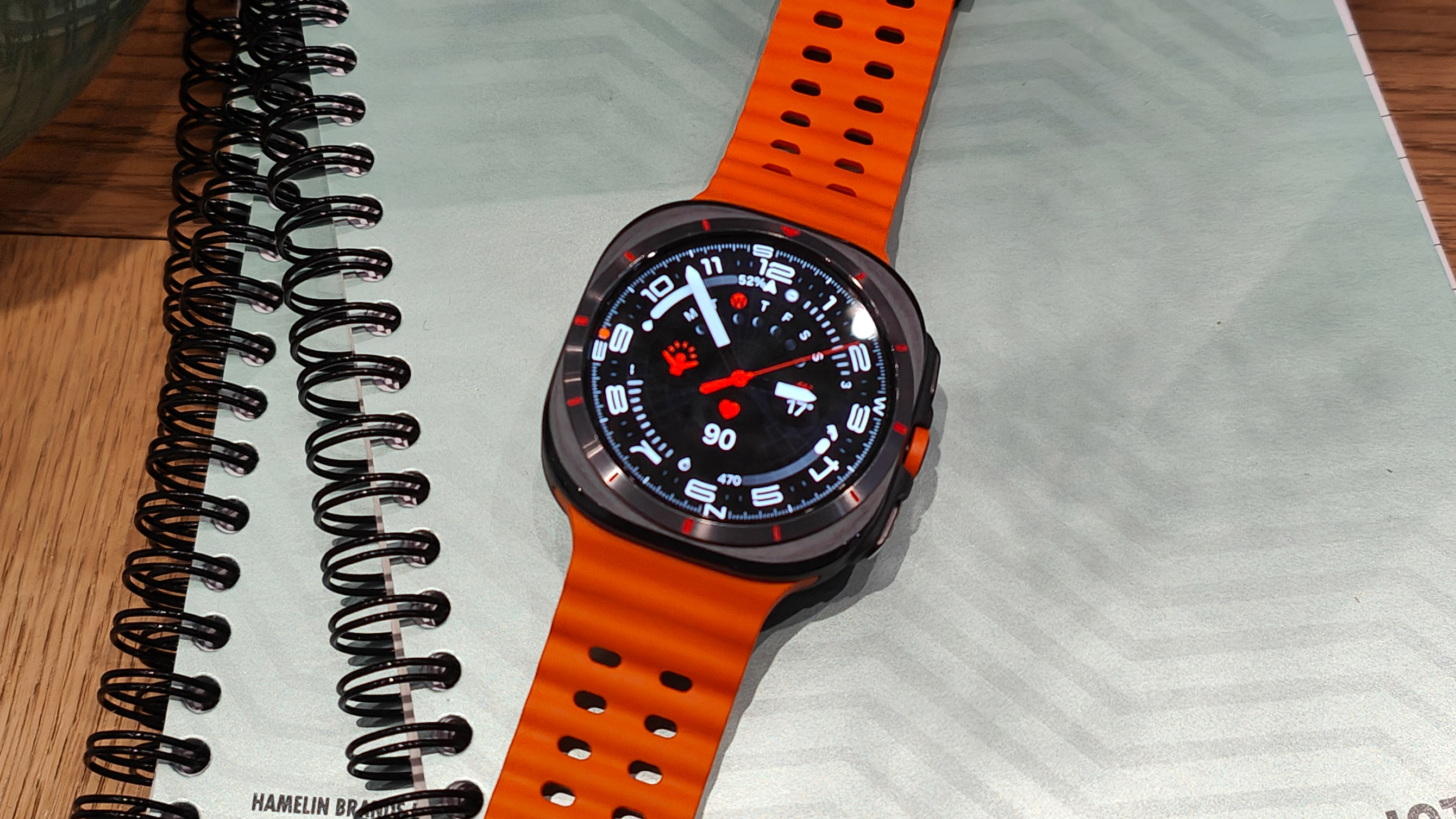
Specifications
Reasons to buy
Reasons to avoid
The Samsung Galaxy Watch Ultra is a durable wearable that we described as “a beast of a smartwatch” in our review, and should suit those who love fitness and the outdoors, as well as anyone who has a Samsung smartphone and wants to stay in the ecosystem.
When we tested the Galaxy Watch Ultra, we said this is definitely the best smartwatch from Samsung to date, at least from a technical standpoint. It has a round, 1.43-inch AMOLED screen with a Sapphire Crystal always-on display – this can be switched to a new infrared-style Night mode. Build quality is excellent with a tough, scratch-proof titanium exterior that’s designed to bring you a rugged look and feel. This casing is dive-proof with IP68 and 10ATM ratings, and is designed for extreme low and high temperatures to a “military grade” standard, too. This does mean it looks big. In our review, we commented that it’s “bulky and cumbersome in any setting other than an activity one,” although at 60g, it’s not heavy for a smartwatch.
In our review, we said the Galaxy Watch Ultra is “easy and ergonomic to use” as well as being super responsive. To make it even more straightforward, there’s a ‘quick button’ that you can program to automatically start workouts – one of the many ways the Samsung Galaxy Watch Ultra is eerily similar to Apple’s Ultra smartwatch range.
As you’d expect from such a rugged smartwatch, there are a lot of health and fitness tracking features here, including heart rate, blood oxygen, temperature, and body composition analysis. Samsung’s Galaxy AI also brings upgraded sleep and recovery scores. There are also features specifically for the outdoors, like GPS, a dive mode, an emergency siren, and a TrackBack feature to help you retrace your steps if you deviate from your planned route.
Battery life isn’t fantastic and caps out at 100 hours in low-power mode. With all of the features enabled, it barely lasted into day three during our testing, which was disappointing. But if you don’t mind charging it often and like the look and feel of a bulkier wearable, then this is the best Samsung watch around right now.
Read our full Samsung Galaxy Watch Ultra review
The best Android fitness smartwatch
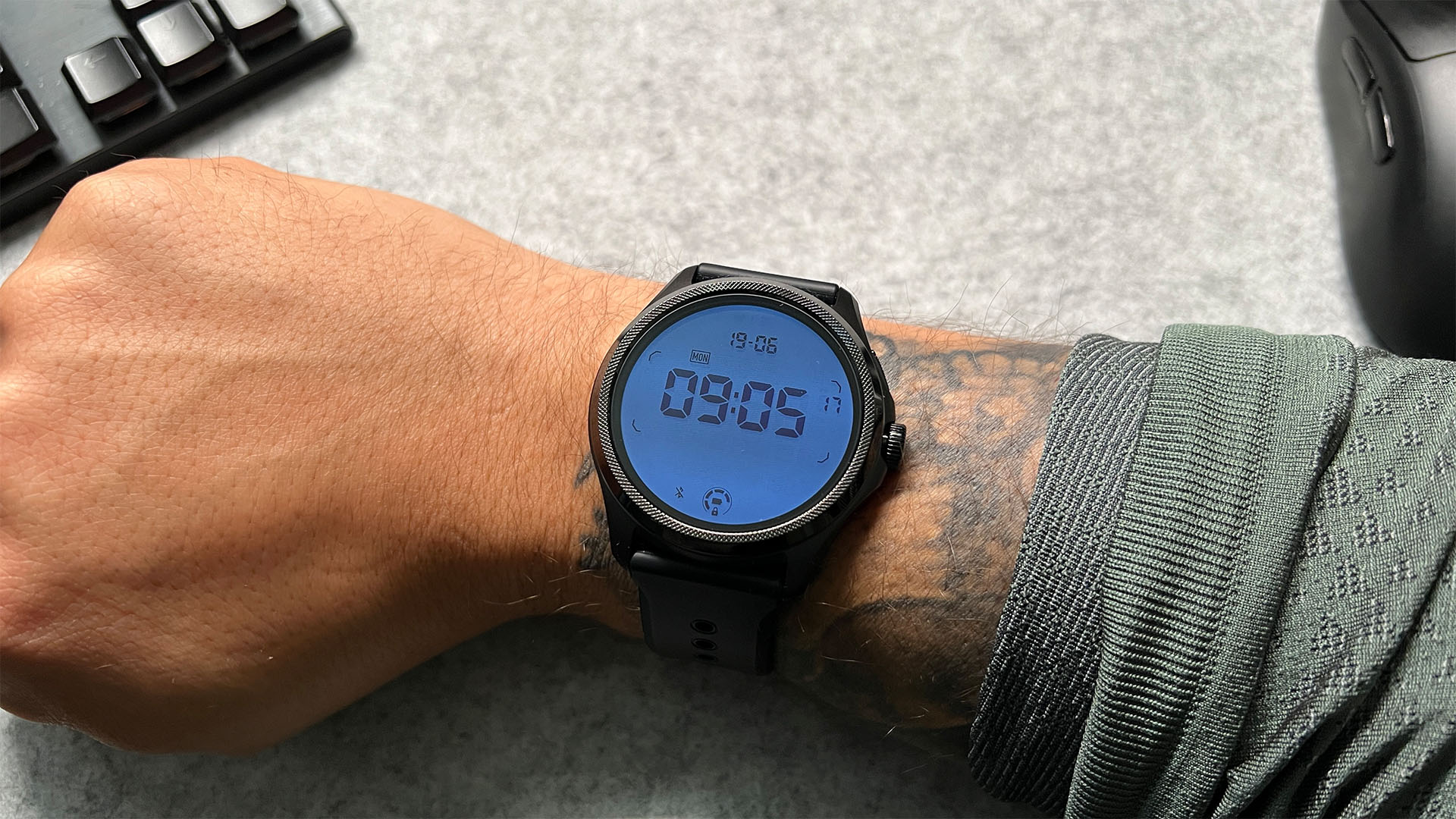
Specifications
Reasons to buy
Reasons to avoid
The TicWatch Pro 5 isn’t the cheapest option, but it stood out in our testing as the top pick for fitness enthusiasts or anyone serious about improving their health.
You’ll find Snapdragon’s W5+ chip under the hood, which is what makes this watch snappy and responsive and gives it an impressive battery life of 80 hours, even with all of the sensors and settings enabled. It has a rotating crown navigation, which you’ll be familiar with if you’ve ever tested an Apple Watch, and this makes navigation easy, along with the touchscreen. You’ll find all of the Wear OS features here, like Google Wallet and access to apps, although there’s no Google Assistant available yet.
The TicWatch Pro 5 excels when it comes to fitness tracking. There’s a robust set of sensors here that detect all sorts of metrics, including heart rate, skin temperature, Sp02, and GPS. In fact, we tested it side-by-side with the Apple Watch Ultra and got nearly identical results. All of your important health and fitness data is sent to the Mobvoi Health app, which isn’t particularly exciting but works well.
Looks-wise, the TicWatch Pro 5 has a more classic design than many rivals. In our review, we wrote: “It’s a gorgeous watch, looking closer to an analog timepiece than many on the market.” It has a 1.43-inch AMOLED display, which is actually made up of two screens; one displays the basics, like steps, calories, and heart rate. We described this as “a pleasing minimalist feel, like an old Casio watch” in our review. Tap the screen and you’ll drop into Wear OS functionality.
It’s not as durable as the more rugged options in this list, like the Samsung Galaxy Watch Ultra, but the screen does have a Corning Gorilla Glass coating, which should help against accidental knocks and scrapes. Overall, the TicWatch Pro 5 is an attractive, high-performing smartwatch, particularly suited to fitness lovers who prioritize accuracy and longevity from their wearable.
Read our full TicWatch 5 Pro review
The best Android smartwatch for value
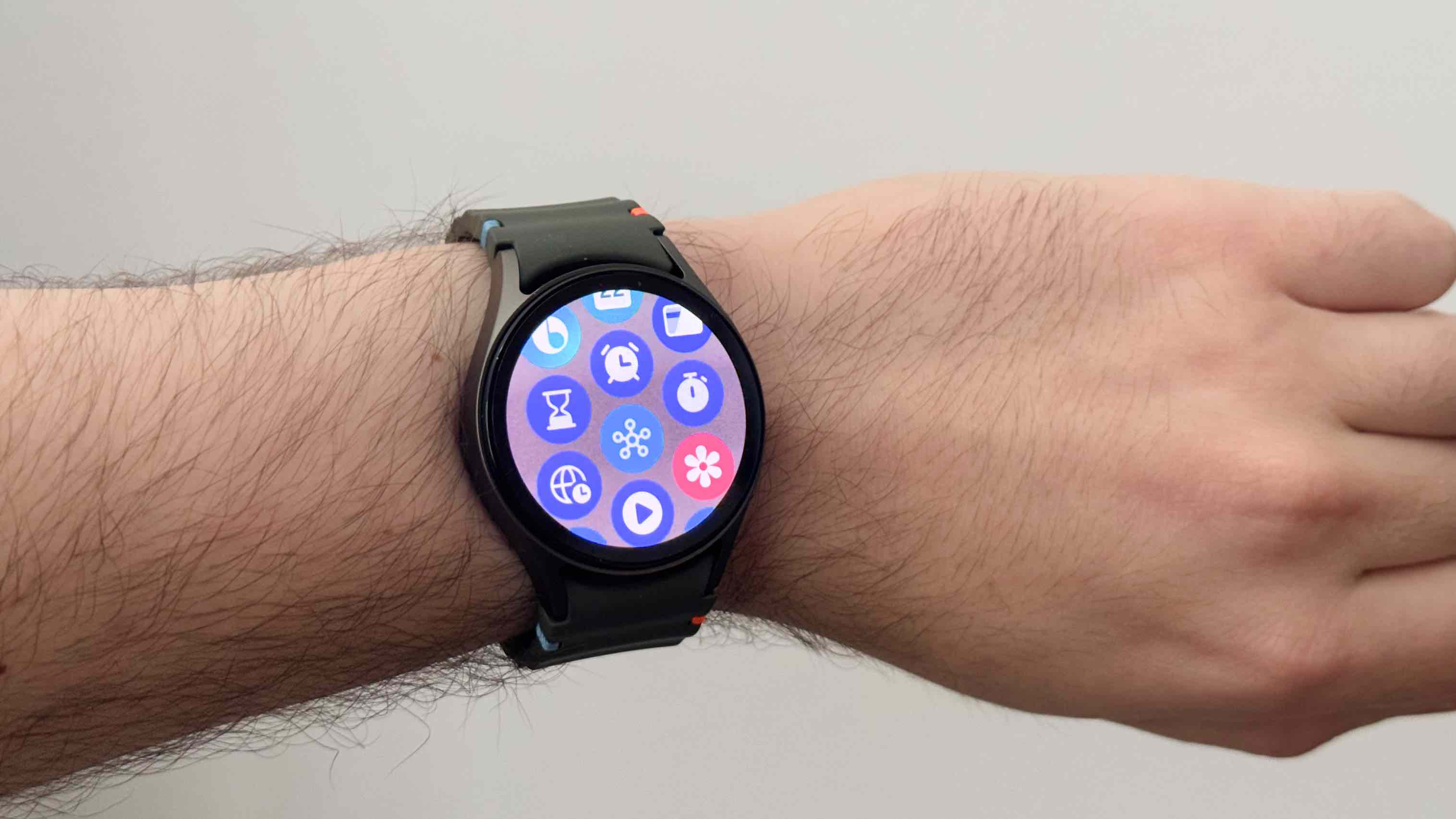
Specifications
Reasons to buy
Reasons to avoid
The Samsung Galaxy Watch 7 is a well-rounded smartwatch that may not have the novelty of Samsung’s Galaxy Ring or the ruggedness of the Ultra, but it offers great value for money and a sleek design.
Powered by Samsung’s first 3-nanometer Exynos chip, the watch delivers fast, intuitive performance. In our review, we wrote: “applications, be they Spotify, Messages, or Workout, open quickly, and processes wrap up pretty fast.” A new double pinch gesture is also good for hands-free control, especially for calls and timers. One downside is the watch’s battery life, which only lasted a day during testing.
You’ll find hundreds of workouts and health metrics are tracked, which is thanks to Samsung’s new BioActive Sensor. This lives on the back of the watch and delivers data we found to be highly accurate compared to other wearables. You can take a heart rate measurement, ECG and track AGEs, or advanced glycation end products, which indicate overall metabolic health. It’s also certified for detecting sleep apnea, a great addition considering the Galaxy Watch range is already excellent at tracking sleep. The Galaxy Watch 7 also introduces a new energy score. This is part of Samsung’s new suite of AI health features, which improve data accuracy and offer new insights. Although you’ll need a Galaxy smartphone to use them.
The Samsung Galaxy Watch 7 looks good. It has a sleek, circular build with a vibrant AMOLED display and no visible bezel. There’s an easy band-swapping mechanism, so you can easily switch out the band it comes with for different colors and materials.
You could argue this is an Iterative update with minor improvements over previous models. But in our review, we wrote: “Compared to the Ultra, it's the one for everyone”. So if you’re after a solid wearable that pairs seamlessly with Samsung Galaxy phones without the premium price of the Ultra, the Galaxy Watch 7 is our top pick.
Read our full Samsung Galaxy Watch 7 review
How to choose the best Android smartwatch
When you’re choosing the best Android smartwatch for you, it’s important to consider compatibility. Almost all of the best Android smartwatches use some version of Wear OS, and this works well with Google’s apps and services. However, some features on Pixel or Galaxy watches will be locked away unless you own a phone from the same company.
Next, you’ll need to think about the features you need. For example, do you want an Android smartwatch that’s primarily going to track your fitness? In this case, you’ll need solid heart rate tracking and GPS functionality. Some watches focus more on notifications, music control, and payments. You’ll need to figure out which features you want to use daily.
We’d also recommend considering battery life. This is a significant factor for most people. Some of the best smartwatches that are packed with features (like always-on displays) may have a shorter battery life than you’d expect. You’ll need to decide whether you’re happy to charge a device every day or need one that lasts several days on a single charge.
Because most people wear their smartwatches every day, you’ll want to be sure you like the design and how comfortable it is. Choose one that has an aesthetic and a size that’ll suit you. There is a wide range of options, from sleeker and more minimal designs to chunky, rugged models, and it's worth trying one on and looking into replaceable bands for different looks.
Finally, think about your budget, from the more budget-friendly options to premium watches packed with high-end features. We recommend setting a budget based on how many of the features we’ve outlined above are important to you – remember that more expensive doesn’t always mean the best.
Do Android smartwatches also work with an iPhone?
Some of the best Android smartwatches will work with an iPhone. However, those that do will often work with very limited functionality compared to one of the best Android phones.
It'll depend on which smartwatch you choose, but you'll generally still be able to receive notifications, track fitness data, and use some apps. However, features like replying to messages, accessing some apps, or using voice assistants may not work as seamlessly as they would with an Android phone.
This means that if you’re an iPhone user, an Apple Watch is generally going to be the best option for you, giving you full compatibility. However, if you do prefer an Android smartwatch for whatever reason, it'll probably work; you'll just need to expect far fewer features when it's used with iOS. There's really no reason to pick it over an Apple Watch.
How we test the best Android smartwatches
When testing a smartwatch, we pair it to our phones (either any old Android handset, or proprietary ones in the case of Google or Samsung) and use it for at least a week. This testing process includes testing its true battery life so it's drained completely, seeing how it handles notifications, and loading third-party apps onto the watch.
We also wear it while exercising and working out so we can see if it's accurate at measuring distances and time, comparing it with a market leader such as the Garmin Fenix 8.
To create our ranking, we considered our review score, the specs, features, performance, price, and how they stack up to alternatives.
Sign up for breaking news, reviews, opinion, top tech deals, and more.

Stephen Warwick is TechRadar's Fitness & Wearables writer with nearly a decade of experience covering technology, including five years as the News Editor of iMore. He's a keen fitness enthusiast and is never far from the local gym, Apple Watch at the ready, to record his latest workout. Stephen has experience writing about every facet of technology including products, services, hardware, and software. He's covered breaking news and developing stories regarding supply chains, patents and litigation, competition, politics and lobbying, the environment, and more. He's conducted interviews with industry experts in a range of fields including finance, litigation, security, and more. Outside of work, he's a massive tech and history buff with a passion for Rome Total War, reading, and music.